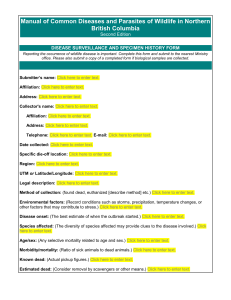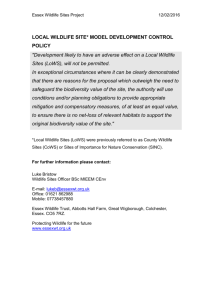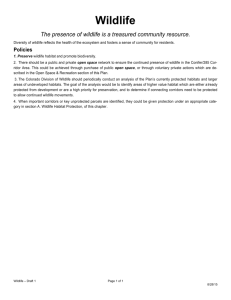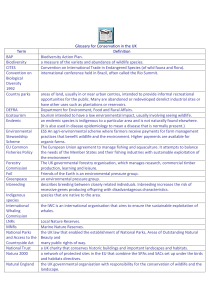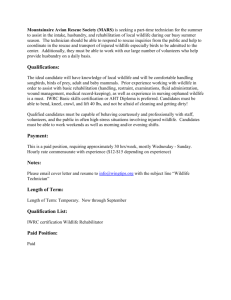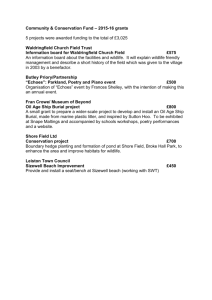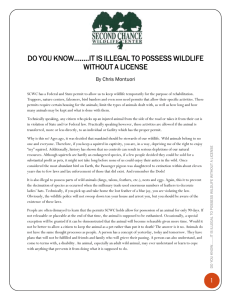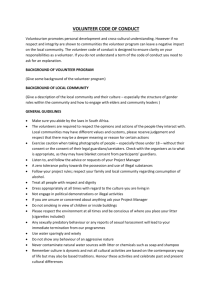Wildlife Disease Management Course: Minor Change to Learning
advertisement
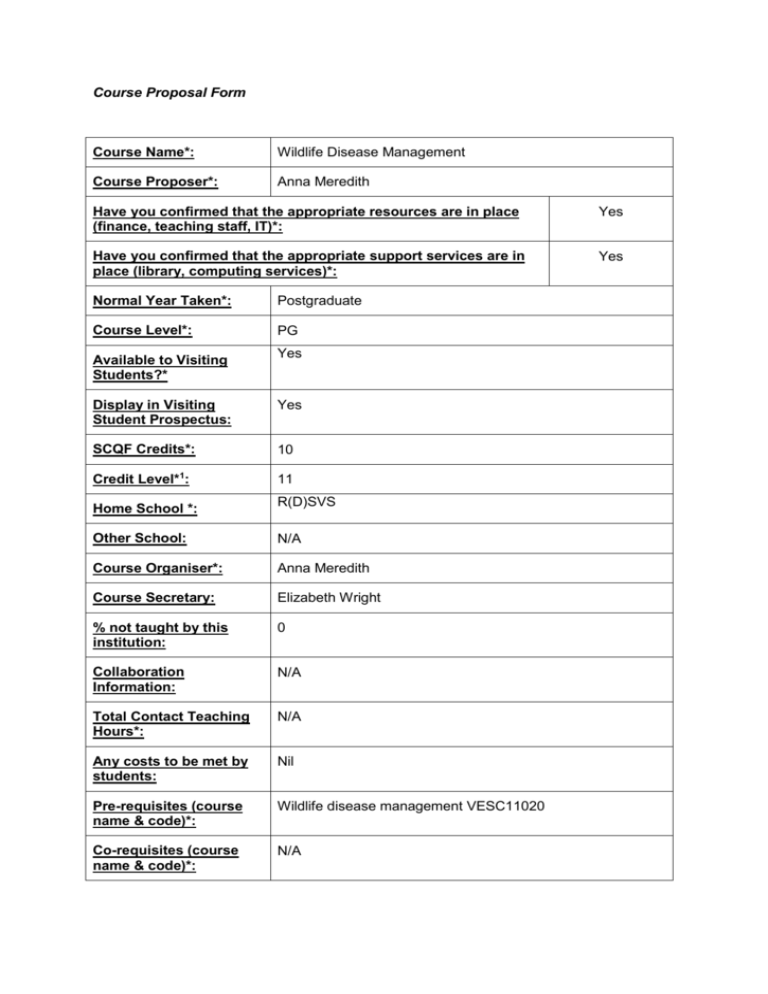
Course Proposal Form Course Name*: Wildlife Disease Management Course Proposer*: Anna Meredith Have you confirmed that the appropriate resources are in place (finance, teaching staff, IT)*: Yes Have you confirmed that the appropriate support services are in place (library, computing services)*: Yes Normal Year Taken*: Postgraduate Course Level*: PG Available to Visiting Students?* Yes Display in Visiting Student Prospectus: Yes SCQF Credits*: 10 Credit Level*1: 11 Home School *: R(D)SVS Other School: N/A Course Organiser*: Anna Meredith Course Secretary: Elizabeth Wright % not taught by this institution: 0 Collaboration Information: N/A Total Contact Teaching Hours*: N/A Any costs to be met by students: Nil Pre-requisites (course name & code)*: Wildlife disease management VESC11020 Co-requisites (course name & code)*: N/A Prohibited Combinations (course name & code)*: N/A Visiting Students Prerequisites: N/A Short Description*: This course will cover the practical management of diseases of wildlife, the implications of wildlife population structure and pathogen transmission rates and routes, and options for the control of disease. Keywords2: Disease management Fee Code if invoiced at Course level: Default Course Mode of Study*: Default Delivery Period*: Course Type*: Summary of Intended Learning Outcomes*: CE October and November Standard 1. Discuss the complexities of wildlife disease management, including implications for domestic animal and human health, and identify the major channels of communication about wildlife disease 2. Discuss the methods available for controlling disease in wildlife (previously ‘Know the principles of modelling disease dynamics and management scenarios and discuss the methods available for controlling disease in wildlife’) 3. Apply risk assessment and contingency planning for introduction of exotic disease 4. Describe the principles of disease management in endangered wild animals 5. Understand how to approach diagnosis and treatment of disease in wild animals including triage (previously ‘Discuss the necessity and limitations of wildlife disease surveillance and monitoring’) Special Arrangements: None Components of Assessment (inc. % weightings)*: Mass mortality scenario and plan for intervention (100%) Exam Information* (please remove 2nd Sit if not applicable): Syllabus/Lecture List: N/A Study Pattern/Course Structure: Benchmark Statements Assessed: Teaching Load* (% taught from each School): 100% Reading Lists: Convenor of Board of Examiners: Dr Darren Shaw * Indicates mandatory fields.


